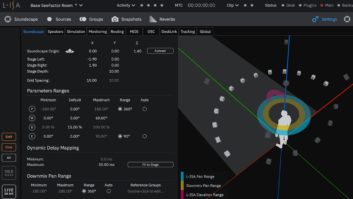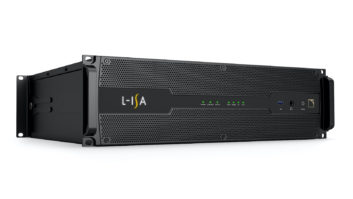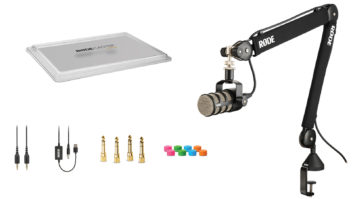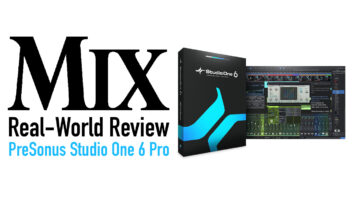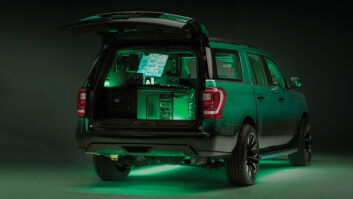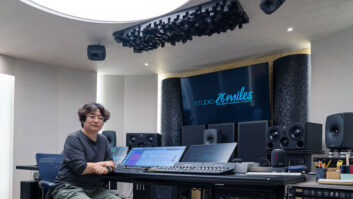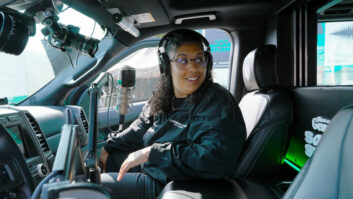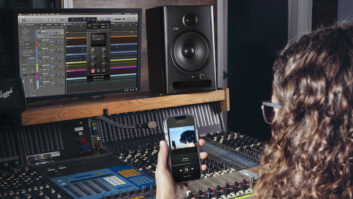NASHVILLE, SEPTEMBER 13, 2023 ― Inspired by the work of icons like Jimi Hendrix and Jeff Beck, Producer and Session Musician Shawn Tubbs developed his own passion and talent for guitar at a young age. His skills catapulted him into a career supporting artists for both live and recorded performances. From touring alongside Carrie Underwood to performing with Stone Temple Pilots on Saturday Night Live and MTV Unplugged, Tubbs has traveled the world performing in intimate venues and large stadiums.
Tubbs’ professional career began in California at age 15, doing session work and playing in some of the region’s hottest clubs. His talents were noticed by the contemporary Christian rock band, The Violet Burning, which propelled him into the world of Christian music as a recording artist and performer. After touring with Underwood for over a decade, Tubbs retired from life on the road and turned his attention to creating online gear demos for YouTube audiences, which he says “boast a large following of gear and guitar lovers alike.”
Now a session guitarist focusing on creating music for various artists, Tubbs completes much of his work remotely, recording or producing tracks from his home studio. This includes custom tracks, which can be found on projects for artists such as bassist and producer Anthony Sallee. Tubbs’ most recent and notable work can be found on three tracks of the late David Crosby’s album, For Free: “Ships in the Night,” “Boxes,” and “River Rise.” Tubbs also released his own album, Demolition, A Collection of Short Guitar Jams, which is available on Soundcloud.
With his musical focus turned primarily to recording and producing these days, Tubbs recognizes the need to always have top-of-the-line gear that will enhance his work. As a result, he installed KRK V-Series 8 Studio Monitors, which he says provide natural reproduction of his tracks and projects. “I feel so much more comfortable now as a guitar player hearing my soloed tracks through the V8s,” he shares. “When I send out work that I have done, I’m confident in what I’ve produced because of how true the V8s are to the sound of the source. In the rare case when a client says a track sounds off, I know it wasn’t because the monitoring was misrepresented. Instead, it’s usually just a matter of the client looking for something else, and the KRKs make it possible for me to easily go back in and adjust the source tone. That’s a big benefit of the V8s for me.”
As a guitarist and producer who has devoted years to his monitors, Tubbs has a unique perspective on the V8s’ performance. “I’m moving into a much smaller room, and the V8s might be a bit much for the space, but I know them and am comfortable with them,” he explains. “I can tune the room for statics and anomalies, but at the end of the day, I know that no matter what I do, my mid- and top-end are going to be honest. That’s what the V8s are―brutally honest speakers. The V8s just sound fabulous. I trust them, and I’m confident in my work because of them.”
Before selecting KRK, Tubbs was a dedicated user of another industry standard brand of studio monitors. He was encouraged by a friend from Gibson [parent company to KRK] to give the V-Series a try, and it wasn’t until Tubbs heard his own soloed tracks for a session project through the V8s that he realized the difference KRK made. “At first, I didn’t want my world to be interrupted,” he explains. “I was so used to my old monitors, but when I soloed up my guitar takes with KRK, it was the first time I could hear how the mids actually sounded. They were ridiculously natural. As a guitar player, the mids are my whole world, so the second I heard them, I knew I was going to have to make a switch to KRK. Since then, I’ve seen a lot of people switch to KRKs solely because they knew if I left my previous brand for them, they must be very good. KRK is really crushing it.”
